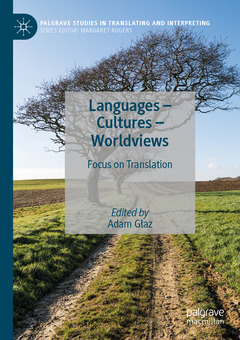Description
Languages – Cultures – Worldviews, 1st ed. 2019
Focus on Translation
Palgrave Studies in Translating and Interpreting Series
Coordinator: Głaz Adam
Language: English
Subjects for Languages – Cultures – Worldviews:
Publication date: 08-2021
440 p. · 14.8x21 cm · Paperback
Publication date: 01-2020
440 p. · 14.8x21 cm · Hardback
Description
/li>Contents
/li>Biography
/li>Comment
/li>
This edited book explores languages and cultures (or linguacultures) from a translation perspective, resting on the assumption that they find expression as linguacultural worldviews. Specifically, it investigates how these worldviews emerge, how they are constructed, shaped and modified in and through translation, understood both as a process and a product. The book?s content progresses from general to specific: from the notions of worldview and translation, through a consideration of how worldviews are shaped in and through language, to a discussion of worldviews in translation, both in macro-scale and in specific details of language structure and use. The contributors to the volume are linguists, linguistic anthropologists, practising translators, and/or translation studies scholars, and the book will be of interest to scholars and students in any of these fields.
Adam Głaz is Associate Professor of English and Linguistics at Maria Curie-Skłodowska University (UMCS) in Lublin, Poland. He researches cognitive and cultural linguistics, linguistic worldview, and translation.

